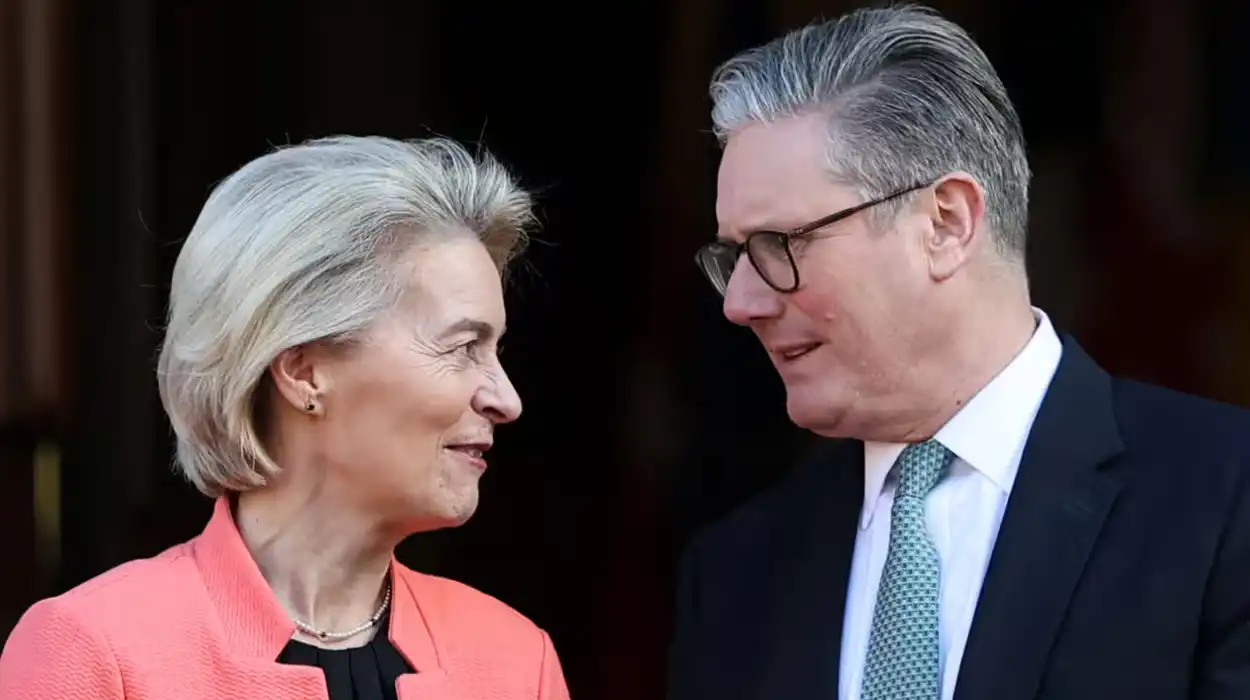UK (Parliament Politics Magazine) – Labour’s Nick Thomas-Symonds pledges a pragmatic EU deal prioritizing growth and stability, focusing on youth mobility and trade issues ahead of key talks.
As reported by The Guardian, Nick Thomas-Symonds, leading UK-EU negotiations, stated the new agreement would prioritize growth and move away from past disputes.
What did Nick Thomas-Symonds say about the UK’s new pragmatic approach to EU relations?
The Cabinet minister said,
“Pursuing a new partnership with the EU is about meeting the needs of our times. This is not about ideology or returning to the divisions of the past, but about ruthless pragmatism and what works in the national interest.”
He stated,
“We want to put more money in the pockets of working people and provide Britain with long-term stability and security; we won’t be defined by debates and arguments of the past.”
Acknowledging global instability, Mr Thomas said Labour is ready to face new challenges, as the government aims for a reset with the EU amidst economic uncertainties.
He said,
“The government needs to work with Britain’s allies on solutions that will minimise the impact of these global shocks.”
Thomas-Symonds highlighted that the new talks would focus on the positive impact on people and businesses, stressing it’s the right moment for the EU to reset its approach to Britain.
He said,
“Britain is a politically stable country, and the government has a huge mandate, with over four years left to deliver our policies,”
adding,
“We’ve shown that Britain is back on the world stage and that it has a lot to offer.”
According to the minister, Keir Starmer and von der Leyen will assess progress ahead of the 19 May summit and ensure goals like “economic growth, raising living standards, and UK safety are on track.”
He made it clear that the UK will stick to its red lines, ruling out a return to the single market, customs union, or freedom of movement.
Thomas-Symonds said,
“We will only agree with an EU deal that meets the needs of the British people and respects the 2016 referendum result. By doing this we will seize the opportunities in front of us to deliver a better future.”
What key issues are the UK and EU set to negotiate next?
Thomas-Symonds’ remarks come as Keir Starmer prepares to meet Ursula von der Leyen in London to advance diplomatic progress.
Britain aims to align more closely with EU trade rules, moving away from the hardline Brexit stance that once pushed for maximum separation.
Negotiations between the UK and EU are nearing on critical topics: a youth mobility program, a sanitary deal to ease food checks with the EU, and a carbon emissions agreement.
The SPS agreement is expected to follow a 2023 EU-Switzerland deal but with major changes. At the same time, UK defence companies stand to benefit from the nearly sealed EU defence pact and its €150bn fund.
Sources from both the UK and EU predict an announcement on trafficking and intelligence sharing, marking a strong approach to irregular migration.
UK’s youth mobility visa deal
More than 60 Labour MPs have called on Keir Starmer to introduce a youth mobility visa, allowing thousands of young Europeans to live and work in Britain.
Rachel Reeves, the Chancellor, revealed that negotiations on the youth mobility visa are progressing, suggesting a potential deal ahead.
Cabinet members remain divided over the proposed youth visa deal. Ms Reeves advocates for time-limited visas, aligning with Brussels’ priorities, while Home Secretary Yvette Cooper demands a cap on numbers with a one-year limit.
What did Rachel Reeves say about the youth mobility scheme?
Rachel Reeves stated,
“We want to see net migration fall as a government and we’ve set out plans to achieve that. We also want to have control of who comes into this country. That is really important for us.”
She added,
“But we’re not going to be returning to free movement. We will bring down net migration, and the talks are ongoing with the EU around reducing trade barriers.”

